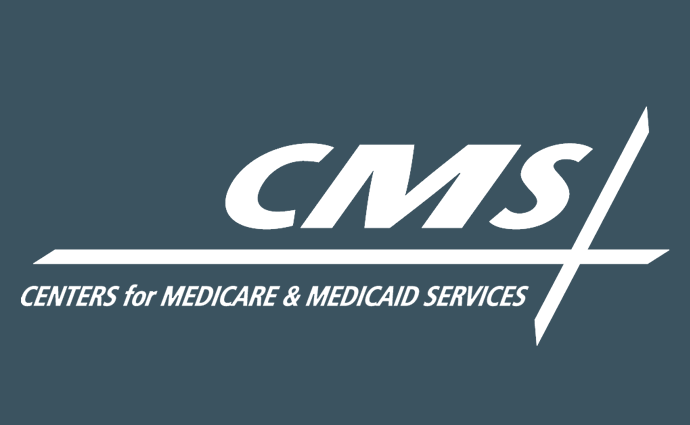CMS Starts Recouping Accelerated, Advance Medicare Payments
The agency has begun recoupment of accelerated and advance Medicare payments from providers who borrowed the emergency funds one year ago to battle COVID-19.

Source: Xtelligent Healthcare Media/Centers for Medicare & Medicaid Services
- CMS has started recouping Medicare payments it fronted to healthcare providers last year during the COVID-19 pandemic.
In a recent MLN Matters newsletter, the agency stated that it has begun recovering the payments through the COVID-19 Accelerated and Advance Payments (CAAP) on March 30, 2021, and will continue recoupment depending on the one year anniversary of when providers received their first payment.
“Please be sure your billing staff are aware that the recovery has begun, or will begin soon but no sooner than 1 year from the date we issued the CAAP to you,” CMS said in the newsletter.
Lawmakers expanded Medicare’s Accelerated and Advance Payments Program through the Coronavirus Aid, Relief, and Economic Security (CARES) Act last March. The program distributed a total of $100 billion to hospitals and other types of providers impacted by the COVID-19 pandemic by May 2020.
CMS has the authority to provide upfront Medicare payments to providers in the event of a national emergency or natural disaster “in order to accelerate cash flow to the impacted health care providers and suppliers.” The payments are meant to support providers during the claim submission or processing disruption.
READ MORE: CMS Amends Repayment Terms for Accelerated, Advance Payments
Providers who accept the payments, however, do have to repay CMS, and the agency can hold back future Medicare reimbursements to the provider until the upfront payments are recouped.
These providers were originally scheduled to start repayment of the Medicare payments made in advance during the COVID-19 pandemic in August 2020.
But CMS and lawmakers through the Continuing Appropriations Act, 2021 and Other Extensions Act (P.L. 116-159) extended original repayment timelines in light of the ongoing struggles stemming from the pandemic.
During the recoupment period, CMS will hold back a portion of new Medicare claims from providers—25 percent during the first 11 months of recoupment and 50 percent during the six months—until the payments advanced last year are recouped.
Providers are required to have paid back the advanced payments in full 20 months after they received the first payment. If they fail to do so, CMS will charge interest of four percent on the remaining balance.
READ MORE: FAH Wants More Time, Lower Rates on Advance Medicare Payments
The recoupment terms are more favorable to providers thanks to the Continuing Appropriations Act, 2021 and Other Extensions Act and other legislation. Usually, providers have a shorter time until recoupment and CMS would hold back full future Medicare reimbursements until the loan was paid off.
The interest rate is also typically about 10 percent for all remaining balances after the recoupment period.
But healthcare providers are still concerned about repaying CMS for the upfront Medicare reimbursements as their organizations continue to face significant challenges with COVID-19.
According to the latest hospital financial performance report from Kaufman Hall, hospitals and health systems are still seeing slim margins as inpatient and outpatient volumes remain down compared to before the pandemic.
Specifically, the median hospital operating margin index was -0.5 percent in February, not including federal aid meant to offset the revenue losses and expenses from COVID-19. The margin had dropped 30.8 percent year-over-year.
READ MORE: CMS Pays Out $34B in Advance Medicare Reimbursement to Providers
As healthcare providers still face depressed margins and volumes, many industry groups are renewing their call for total loan forgiveness.
“As providers work to continue to dig themselves out of the binds created by responding to COVID-19, we ask that Congress avoid adding onto existing financial pressures and consider authorizing forgiveness for the loans provided by the accelerated and advance payment programs,” Donald H. Crane, president and CEO of America’s Physician Groups (APG), wrote in a March 25th letter to Senate leaders.
“This would play an integral role in providing physicians with financial assistance amidst the current pandemic considering the extent of the changes that have been made to infrastructure, and the disruption to service that has occurred during this pandemic,” added Crane.
The American Hospital Association (AHA) also recently said that it plans to work with Congress and the Biden Administration to get more “relief for hospitals and health systems with Medicare accelerated payments.”
Kaiser Family Foundation (KFF) has recommended that, if policymakers consider additional adjustments to loan repayment terms, that they account for the different sources of funding that have already been distributed during the pandemic and the fact that some providers have recovered more quickly than others.
Additionally, they should consider how changes to repayment could make worse the fiscal strain on the Medicare Hospital Insurance Trust Fund, which is now slated to run out sooner than the 2026 estimate.
KFF researchers also found that the vast majority ($92 billion) of accelerated and advance payments during the COVID-19 pandemic went to Part A providers, which file claims for inpatient hospital stays, skilled nursing facility stays, some home health visits, and hospice care.
Of these providers, short-stay hospitals received 78 percent of the payments.
